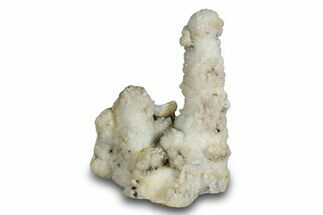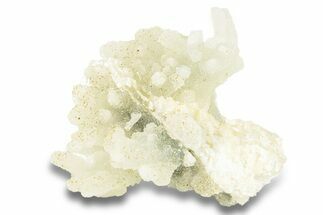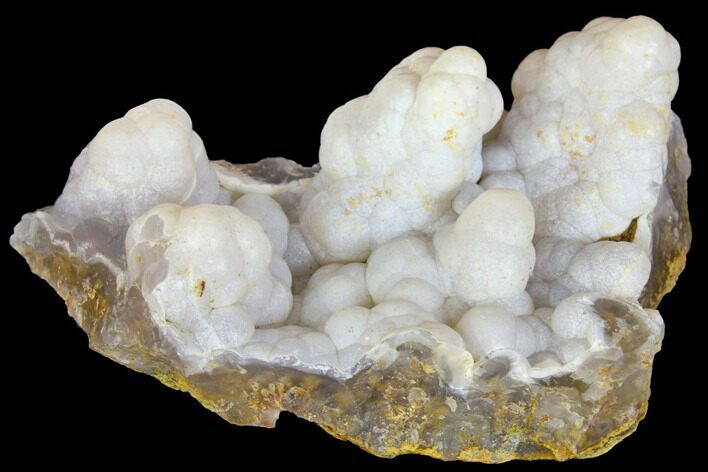This Specimen has been sold.
3.7" Chalcedony Stalactite Formation - Indonesia
This is a beautiful chalcedony stalactite formation that was collected from Indonesia. The chalcedony gathered in layers after a preexisting mineralization along the ceiling of the cavity.
Chalcedony is any microcrystalline variety of silica composed of very fine intergrowths of quartz and mogánite: microcrystalline minerals have microscopic crystals that cannot be observed by the naked eye. Both quartz and mogánite have the same chemical formula SiO2 (silicon dioxide), but different crystal structures. When free from impurities, chalcedony is colorless and transparent. Depending on impurities present during formation, chalcedony can form in a wide variety of colors including red, yellow, green, blue, purple, grey, white, and numerous hues in between. Chalcedony is quite hard at 7 on the Mohs Hardness Scale: this matches its main component quartz, which is the benchmark mineral for the scale at 7.
About Quartz
Quartz is the name given to silicon dioxide (SiO2) and is the second most abundant mineral in the Earth's crust. Quartz crystals generally grow in silica-rich environments--usually igneous rocks or hydrothermal environments like geothermal waters--at temperatures between 100°C and 450°C, and usually under very high pressure. In either case, crystals will precipitate as temperatures cool, just as ice gradually forms when water freezes. Quartz veins are formed when open fissures are filled with hot water during the closing stages of mountain formation: these veins can be hundreds of millions of years old.
Quartz is the name given to silicon dioxide (SiO2) and is the second most abundant mineral in the Earth's crust. Quartz crystals generally grow in silica-rich environments--usually igneous rocks or hydrothermal environments like geothermal waters--at temperatures between 100°C and 450°C, and usually under very high pressure. In either case, crystals will precipitate as temperatures cool, just as ice gradually forms when water freezes. Quartz veins are formed when open fissures are filled with hot water during the closing stages of mountain formation: these veins can be hundreds of millions of years old.
 Reviews
Reviews














